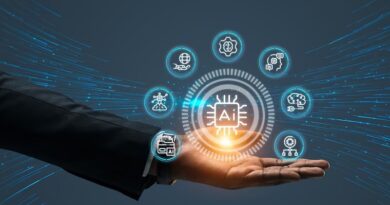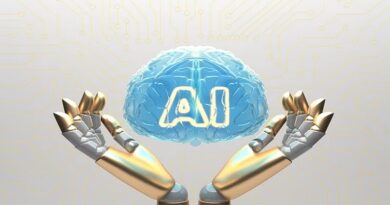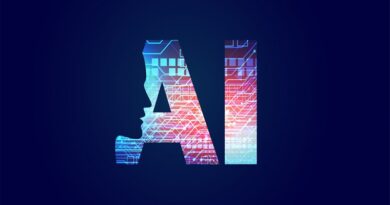Transforming the Workplace: The Impact of Salesforce and Workday’s AI Alliance on the Future of Work
Salesforce and Workday have announced a strategic partnership that aims to reimagine enterprise software with advanced AI capabilities and unified data integration. This collaboration brings together two cloud computing giants, combining Salesforce’s customer relationship management (CRM) expertise with Workday’s human resources and finance prowess.
The partnership centers on three key components: a new AI-driven employee service agent, a unified data foundation, and seamless integration with Slack. These innovations promise to transform how businesses manage their workforce, customer relationships, and financial planning.
“We’re creating the industry’s first common data foundation, combining HR and financial data from Workday with CRM data from Salesforce,” said David Somers, Chief Product Officer at Workday, on a call with VentureBeat. “Together, we have the most powerful datasets in business. And this partnership is really about bringing them together to deliver unparalleled value for our joint customers.”
AI-powered employee agents: The future of workplace assistance
The cornerstone of this partnership is an AI employee service agent built on Salesforce’s AgentForce platform. This virtual assistant will leverage data from both companies to automate a wide array of tasks, from onboarding and benefits management to career development.
“Unlike other agents in the marketplace that require escalating to a human, this agent will do a handoff and do knowledge transfer back and forth with the human so that there’s an integrated experience between humans that are powered by the AI and the agent and the agents themselves,” said David Schmaier, president and chief product officer at Salesforce, during a call with VentureBeat.
Unified data foundation: Bridging the gap between CRM and HR
The partnership also introduces a unified data foundation, with Workday joining Salesforce’s “zero-copy” partner network. This integration allows seamless data access between the two platforms without the need for data duplication. Workday becomes the first application software company to join this network, which already includes data lake providers like Snowflake, Databricks, Amazon, and Google.
“Data is the foundation for every customer and employee experience, because data powers the AI and then AI powers the customer and employee experience of the future,” Schmaier said.
For businesses, the partnership promises to deliver tangible benefits across various domains. Somers provided a vivid example of how the integrated system could benefit sales managers:
“If I’m a sales manager, for example, the ability to go in and ask questions like, ‘Who are my top three performing sales reps? What training have they taken? Compare that to my lower performing sales reps.’,” Somers explained. “Then actually taking action and potentially do something about that, like put them in a learning path for the lower performing reps. You can do all of that through a conversational interface, whether I’m in Workday, Salesforce, or in Slack, where I would normally be doing something like that.”
Transforming enterprise software: A new era of AI-driven business solutions
This collaboration represents a significant shift in the enterprise software market. By combining their strengths, Salesforce and Workday position themselves to compete more effectively against tech giants like Microsoft and Oracle, which have been aggressively expanding their AI capabilities across their business software suites.
The partnership addresses several key trends in the enterprise software market. First, it recognizes the growing demand for seamless integration between different business functions, particularly CRM, HR, and finance. By combining Salesforce’s customer data with Workday’s employee and financial data, the partnership creates a more holistic view of business operations, potentially leading to more informed decision-making and improved operational efficiency.
Secondly, the focus on AI-driven solutions, particularly the AI employee service agent, aligns with the broader industry move towards automation and intelligent assistants. This could potentially reduce operational costs and improve employee productivity by automating routine tasks and providing more intuitive interfaces for complex processes.
The unified data foundation is perhaps the most strategically significant aspect of this partnership. By joining Salesforce’s “zero-copy” partner network, Workday is positioning itself at the forefront of data integration in the cloud era. This move could set a new standard for data sharing and integration in enterprise software, potentially forcing other players in the market to reconsider their data strategies.
However, this partnership also raises questions about market consolidation and data privacy. As more data becomes centralized and shared between major platforms, concerns about data security and potential monopolistic practices may arise.
The new AI-powered services are expected to be available to customers later this year, with showcases planned for upcoming Dreamforce and Workday Rising conferences.
“We think it really is a groundbreaking announcement, two of the leaders in our respective spaces partnering together to allow AI to bring humans and AI together to make employee and customer and financial data that much more available, and to allow us to make companies more productive and more effective,” Schmaier told VentureBeat.
The Salesforce-Workday partnership marks a watershed moment in enterprise software, heralding a future where AI-driven solutions and seamless data integration become the norm rather than the exception. As businesses grapple with the complexities of digital transformation, this alliance offers a glimpse into a world where the boundaries between CRM, HR, and finance blur, giving rise to more holistic, intelligent business operations. The success of this venture could spark a domino effect, pushing other tech giants to forge similar alliances and accelerating the AI arms race in enterprise software.
However, as these powerful platforms converge, questions of data privacy, market competition, and the changing nature of work will inevitably come to the fore. In this new era, the office of tomorrow won’t just be smarter – it will be fundamentally reimagined. The challenge ahead isn’t just about boosting productivity, but redefining what productivity means in an AI-powered workplace.
Read More News : https://theinfotech.info/category/featured-news/




